

The Walrus 2022 Year in Review
Sections: Making Sense of the World | The Walrus Events | At a Glance | The Facts | Health | Politics | Science and the Climate Crisis | Business and Technology | Up Next | Justice and Society | Arts and Culture | Literature and Poetry | Fellowships and Education | Reach and Impact | Awards and Accolades | Celebrating Canada’s Conversation | The Walrus Lab | Donor, Board, Committee, and Staff Listings
Making Sense of the World
For many organizations, 2022 marked a cautious return to a new normal. The Walrus was no exception. One thing we were most proud of in another year of uncertainty and unrest was the increased strength of our organization. With our continued mission to provoke new thinking and spark conversation on matters vital to Canadians, we grew our digital journalism, expanded our reach and the ways we tell stories, and returned to our beloved in-person events to engage and inspire audiences across the country.
The Walrus’s first print issue of 2022 asked: “Will Canadian Journalism Survive?” The cover story of the issue was “Tomorrow’s News,” our annual O’Hagan Essay on Public Affairs. In the story, then Editor-in-Chief Jessica Johnson offered us a deep dive into an industry in transition and the implications for its future with the rise of tech and emerging financial models.
We also looked at the power of words to heal in stories like “Can Reading Treat Depression?” In “Textual Healing,” Katrya Bolger explored bibliotherapy as a new option for treatment — a therapy based on the notion that books can be vehicles for healing. One of the individuals interviewed in the essay described books as “old friends.” The Walrus is now in its twentieth year of operation: we certainly hope that many of our readers and audience members will consider back issues of the magazine to be old friends they can turn to, with future issues creating new and enduring bonds.
More than ever, we hope that The Walrus, in all its forms, offers community to those in Canada and beyond. Audience feedback tells us that The Walrus helps make sense of a fast-changing world and Canada’s place in it. Anne Shibata Cassleman’s essay, “How the UK Is Winning the Race against Climate Change,” took an international view on how Canada is faring in the face of big promises on a big topic. Sadiya Ansari’s “Child Care Revolution: What Canada Can Learn from Germany” looked at another country’s success in examining Canada’s announced child care reform. In October 2022, The Walrus Talks landed in Ottawa to explore global food insecurity (The Walrus Talks Global Hunger Crisis), with seven speakers bringing Canadian and international expertise on an increasingly urgent issue.
We thank our donors, partners and sponsors for another incredible year. Read on for a look back on the stories, conversations, poetry, and art we brought to readers, audiences, and households across the country and beyond.
The Walrus Events
In 2022, The Walrus events offered national and international audiences nuanced conversations, accessible virtually and, for the first time since 2020, in theatres and at conferences across Canada. Our event series reached over 8,000 households via ten virtual and nine in-person events in Vancouver, Toronto, Halifax, and Ottawa. Audiences enjoyed the return of lively in-person connections while also valuing the ability to participate from home and on demand through The Walrus’s livestreams and online video room.
In person, The Walrus Talks hosted events with Concordia University — about artificial intelligence, sustainability, and the social and political innovations shaping our future — and partnered with TD Bank Group for important conversations about the changing landscape of work and how the arts and culture sector is navigating the pandemic. The Walrus Talks also took place at conferences, convening expert speakers on Canada’s net-zero future at GLOBE Forum 2022 and on the global hunger crisis at the International Cooperation Futures Festival.
Over 2022, The Walrus Talks at Home covered topics such as inequality and growing wealth disparity at home and abroad, the state of trust in our institutions, what post-pandemic economic recovery looks like for women, emerging solutions for the mental health challenges of Canadians, youth and the climate crisis, pharmacare, digital citizenship, and going beyond the headlines to understand veterans’ experiences.
The Walrus Leadership Dinners virtual roundtables brought together leaders in the business, government, media, public policy, and nonprofit sectors from across Canada. These conversations tackled urgent and complex issues, including the sustainability of news media, mental health care, health system resilience, and water security.
We are grateful for the partnership of Air Canada, Indspire, Labatt Breweries of Canada, and Rogers for their sustained national support of our annual event programming.
At a Glance
206 articles published in print and online
4.2M page views on thewalrus.ca
160K followers on social media (Facebook, Instagram, Twitter, TikTok, LinkedIn, YouTube)
125K downloads of The Conversation Piece podcast
8,094 households and attendees registered from 65 countries for The Walrus Talks (live and virtual)
98 artists featured in print and online
9 fellows trained in long-form journalism, fact checking, digital production, and marketing
Top 5 countries reading thewalrus.ca: United States, Canada, United Kingdom, India, and Australia
Top 5 countries attending The Walrus Talks at Home: Canada, United States, Australia, United Kingdom, and New Zealand
THE FACTS

The Walrus prides itself on the rigour and discipline of its fact checking. Every article published in the magazine’s pages and on thewalrus.ca is fact-checked exhaustively to ensure its accuracy. Our award-winning journalism means audiences turn to us for vital reporting on many important, and often fraught, issues that shape, and sometimes divide, our society.
As our editorial team will often say, we present the facts so that audiences can make their own informed decisions. Several events shook the country in 2022: the war in Ukraine, the ongoing impact of US withdrawal from Afghanistan, the Canadian health care crisis, the emergence of a new Canadian Conservative leader, the continued climate crisis, and the acquisition of Twitter by one of the world’s richest people. The Walrus covered many of these topics, and more, with timely yet evergreen articles whose insights continue to illuminate.
In 2022, a first-of-its-kind conference on fact checking in journalism was held in Ottawa. “Truth in Journalism: How Should Journalists Think about Accuracy” was conceived of and organized by Allison Baker, Head of Research at The Walrus, along with Viviane Fairbank, former Head of Research (and both former editorial fellows).
HEALTH

In 2022, our coverage of key health issues caught the attention of news outlets across the country and around the world, an example being Katrya Bolger’s story “Textual Healing: The Novel World of Bibliotherapy,” which was referenced in the Italian daily newspaper Il manifesto.
Our contributors have also been interviewed about their work by numerous outlets. Katharine Lake Berz spoke to Jim Richards on Newstalk 1010 about her story “Finding a Father on Facebook Marketplace,” and Carine Abouseif, who is also a features editor at The Walrus, appeared on CBC Tapestry to discuss her article “Feeling the Burn: The Workout Video from Jane Fonda to Peloton” about the popularity of at-home exercise, especially during COVID-19 lockdowns. “Instead of exercising for mobility or flexibility or for improved mental health, which I think is something we all really needed when we were locked down … we [sometimes] start exercising only for toned legs and tiny waists,” Abouseif told host Mary Hynes. “It’s okay to want those things … but it takes away so much of what exercise can offer.”
The Walrus has also been cited by outlets like CTV News, which referenced Wendy Glauser’s story “Faith and Access: The Conflict inside Catholic Hospitals,” and Canadaland, which featured Matthew Halliday’s story “New Brunswick’s Mystery Disease: Why Did the Province Shut Out Federal Experts?”
Two events held by The Walrus in November also dealt with the topic of health — The Walrus Leadership Roundtable: Bridging the Gap between Mental Illness and Mental Health and The Walrus Leadership Dinner: Investing in Health System Resilience.
POLITICS

In 2022, The Walrus published a number of stories that dealt with some of the biggest questions facing Canadian politics, including equity, voting rights, and leadership.
In “The Notwithstanding Clause: Is It Time for Canada to Repeal It?” Ira Wells examined the recent debates around section 33 of the Canadian Charter of Rights and Freedoms, which makes it possible to “temporarily override certain Charter rights” and which has been used to enact controversial legislation across the country. At the provincial level, Lisa Fitterman profiled Québec solidaire party leader Gabriel Nadeau-Dubois in “Most Quebecers Don’t Want Sovereignty. Can This Politician Change Their Minds?” while seventeen-year-old Aymaan Abid wrote for Teen Walrus on the topic of “Why the Voting Age Needs to Be Lowered to Sixteen.” Lowering the voting age would allow young people to “actually participate in elections rather than forcing us to sit out and comment from the sidelines,” argued Abid. Youth participation is especially important in policy issues like climate change that have a narrowing time frame in which to take action.
Other stories considered the need for major shifts in politics, including “Why Are There Still So Few Women Leaders in Politics?,” Angela Misri’s analysis of gender representation in Canadian political parties and the tendency for women to be relegated to interim roles while passing them over for permanent leadership. And in “Why Is Politics Getting Nastier?,” Stephen Maher examined the rise in verbal and physical threats against Canadian politicians, fuelled by social media and political polarization, leaving some wondering if working in politics “has become too dangerous a job.”
Early in the year, The Walrus Talks at Home: Inequality, presented by Oxfam Canada, discussed growing income inequality in Canada and across the globe. Later, The Walrus Leadership Forum: Trust in Tumultuous Times, presented by Proof Strategies, analyzed the results of the 2022 CanTrust Index, a nationwide study that measured the level of trust Canadians had in public services, institutions, and political leadership.
SCIENCE AND THE CLIMATE CRISIS
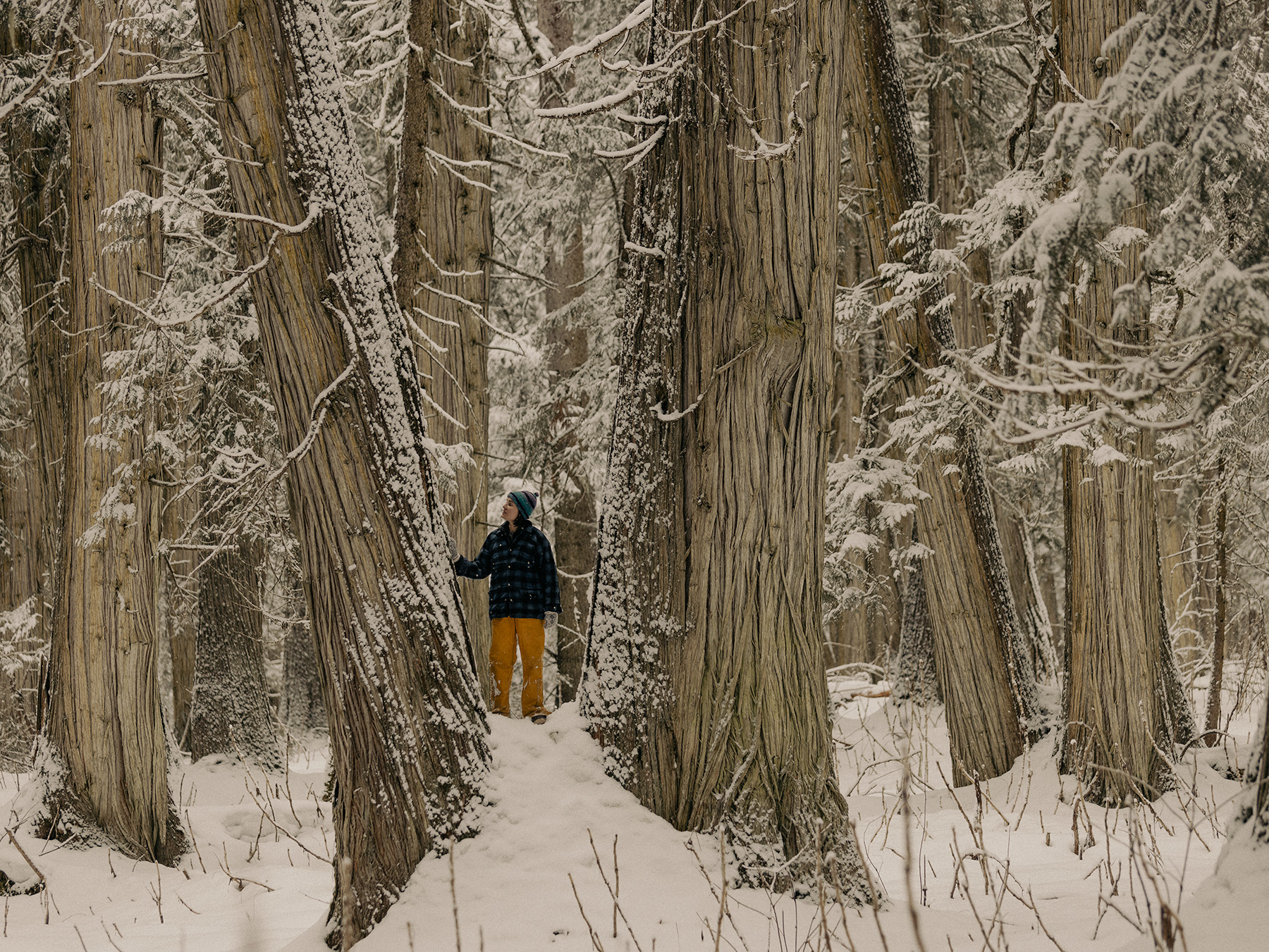
Conversations around climate change only grew more pressing in 2022, and The Walrus brought readers essential stories to help them understand its causes, impacts, and potential solutions.
In “Burning Up: The Controversial Biofuel Threatening BC’s Last Inland Rainforests,” Brian J. Barth investigated the effect that the growing wood pellet industry has had on BC’s inland rainforest, which has lost 95 percent of its core habitat in the last fifty years and could experience ecological collapse within the next decade. And in “Revenge of the Earthworms,” Moira Donovan looked at an invasive earthworm species that has been “quietly and slowly reshaping our ecosystems” for decades and “wreaking havoc” in the process.
The Walrus also published stories featuring more creative approaches to the conversation around climate change. In “Early Warning Signals: How Poetry Helps Us Understand Our Impact on Ecology,” Madhur Anand wrote about melding her interest in poetry with her work as an ecologist. “Perhaps it’s less about what we say than it is about how we say it to one another,” Anand wrote as she considered new ways to communicate the impact of climate catastrophe. And Anne Shibata Casselman’s “How the UK Is Winning the Race against Climate Change” wrote about how successful the UK has been in reducing greenhouse gas emissions while Canada has underdelivered on its climate-action plans.
Eva Holland’s story “Arsenic and Gold: My Family’s Role in the Poisonous Legacy of Giant Mine” was featured in a number of Canadian and American outlets, including Longreads and The Narwhal, and gained even wider circulation after Holland was interviewed on the The Big Story podcast about the article.
BUSINESS AND TECHNOLOGY

The Walrus explored the changing business and technology landscape from several different angles in 2022—from rising inflation and the future of Canadian retailers to the industry behind cleaning up our digital footprints.
Increasing grocery prices were top of mind for many Canadians this year, and in “Rising Food Prices: Could a Grocer Code of Conduct Help?,” Emily Baron Cadloff examined a potential solution in the form of a code of conduct to prevent price gouging at the grocery store. Cadloff also investigated ways that the complicated and error-prone credit score system can hurt consumers, in “How Credit Scores Can Run—and Ruin—Our Lives.” Similarly, Maggie MacDonald wrote in “Why Are Sex Workers Forced to Wear a Financial Scarlet Letter?” about barriers imposed by financial systems, specifically in the case of sex workers who are sometimes turned away by both traditional institutions and tech platforms.
The Walrus also published in-depth stories about changing market trends in the business world. In “How Do You Make the Perfect Toy?,” Matthew Braga investigated the billion-dollar toy market, while Aaliya Dasoo’s story “Is Simons Canada’s Next Great Department Store?” examined the surprising success of the Simons department store chain, which has managed to “not just stay afloat but actually succeed and expand.”
UP NEXT
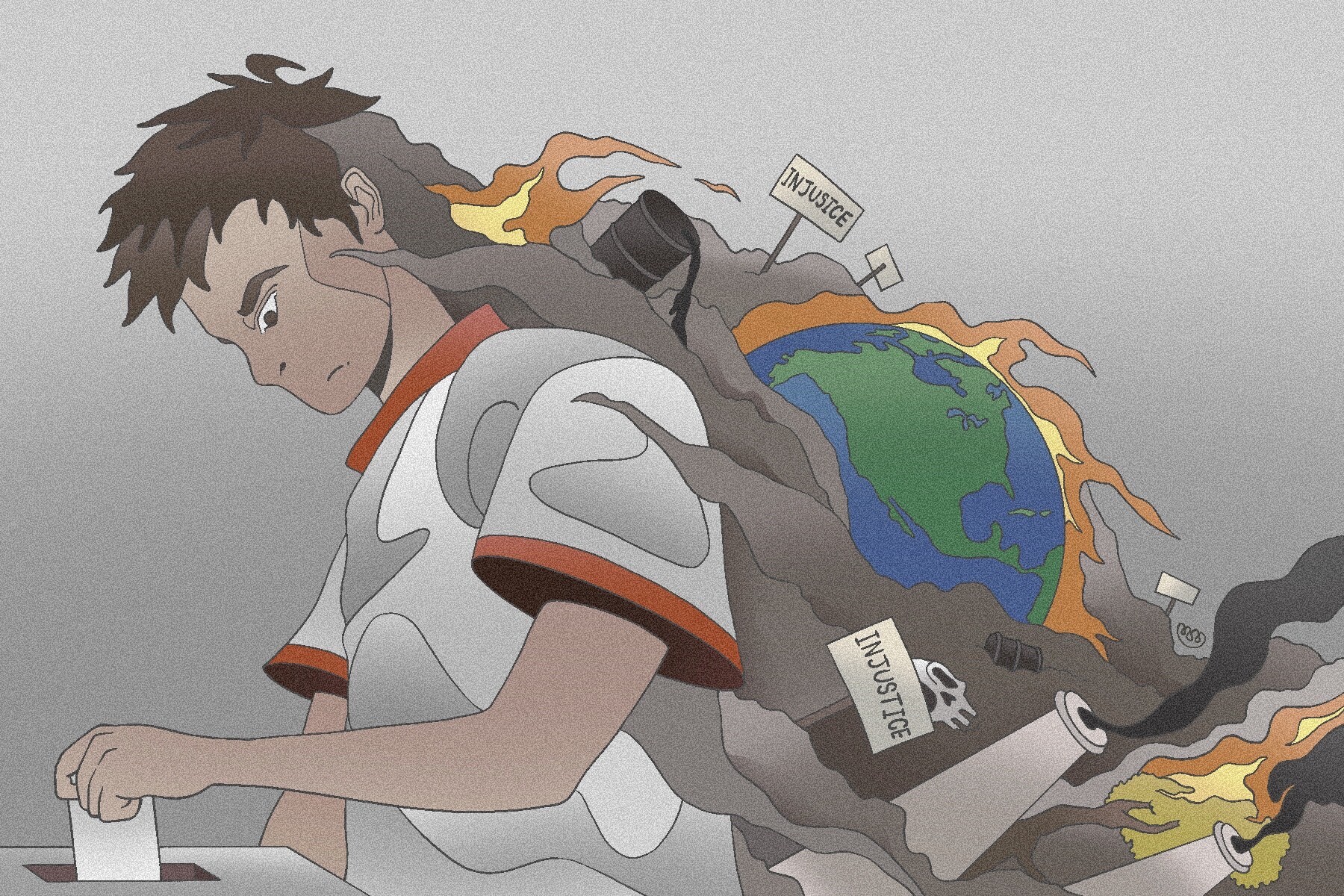
In 2021, we reported on the work we had initiated to amplify the voices of young people. The Walrus was keen to recognize that youth perspectives on social issues are becoming increasingly influential in public policy. We were proud to continue this work throughout 2022.
As part of a project supported by The Rossy Foundation, The Walrus rolled out an editorial series—Teen Walrus—that began with an invitation to youth to submit essays on topics most important to them. In line with the 2022/23 school year, we published six essays accompanied by illustrations, all created by youth aged fourteen to nineteen. From cancel culture and the proposition of lowering the voting age to lab-grown meat and the implications on climate change, this series captured powerful, emerging perspectives on some of the most important issues of our time.
In fall 2022, The Walrus also produced a six-episode podcast series, Youth for Youth, featuring six youth hosts who each interviewed a subject matter expert on issues ranging from the perils of cancel culture to leadership and the arts, lowering the voting age, and more. Following its launch, Youth for Youth was featured on Apple Podcasts under “New and Noteworthy.” The initiative served as one of the few available outlets where youth could develop an audio portfolio to help them embark on a career in digital journalism.
JUSTICE AND SOCIETY
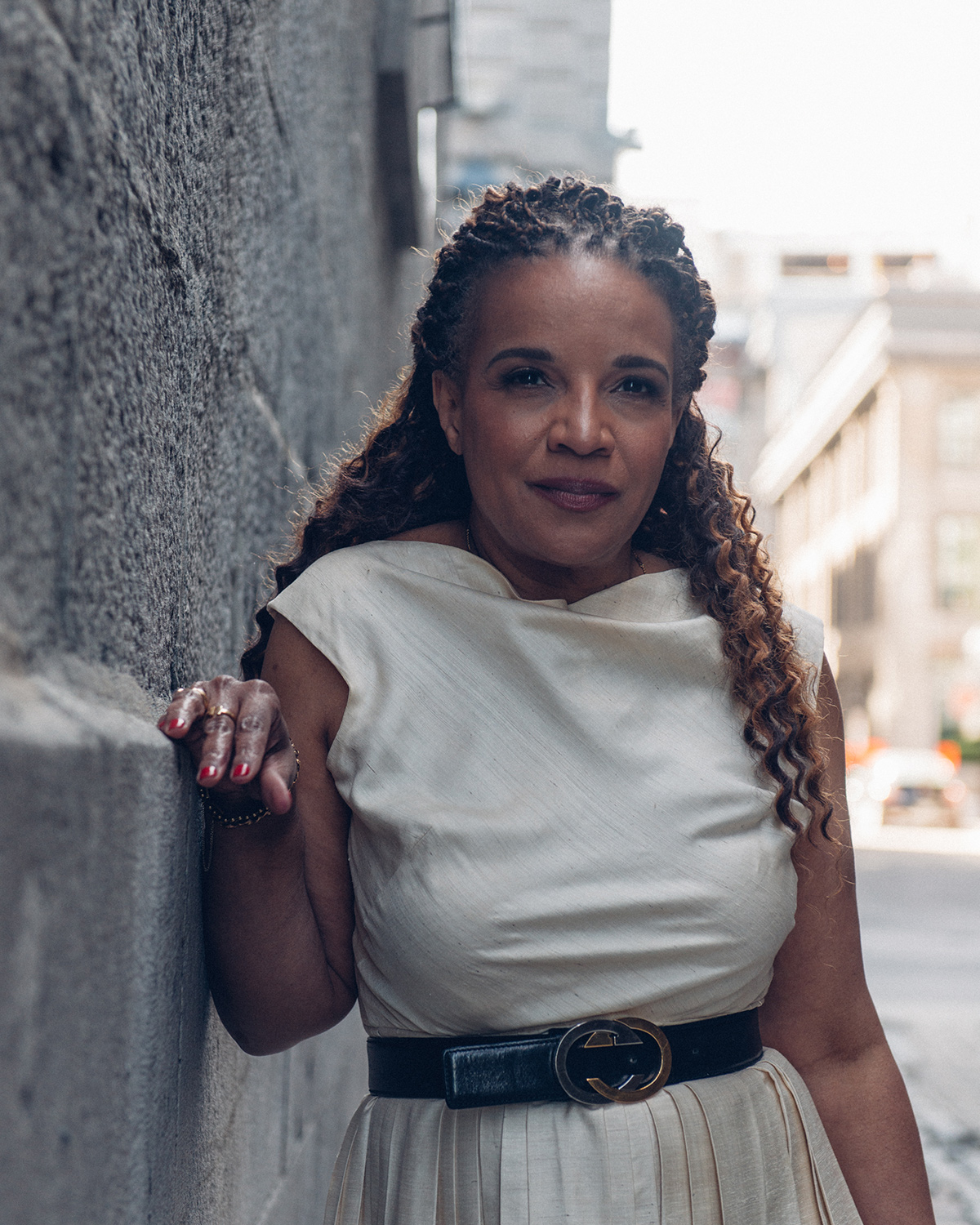
The Walrus reported on notable shifts in Canadian society over the past year, with writers publishing thoughtful coverage of Canada’s struggling social safety net, the legacy of colonization, LGBTQ2S+ issues, and many other topics.
In “‘The New Residential School System’: How a First Nation Rallied against the Foster Care System,” Amy Romer investigated the lasting impact of the foster care system on Indigenous communities, and Andrew Hunter examined Canada’s significant yet under-discussed ties to the transatlantic slave trade in “Tainted Wealth: Canada Has Tried to Erase Its History of Slavery.”
The recording of The Walrus Talks at Home: Veteran Identities was aired twice on CPAC, including on Remembrance Day. Ahead of April’s The Walrus Talks What’s Next?, speaker Kelly Jazvac was interviewed on the CBC’s All in a Day radio show about her work as a visual artist and professor of studio arts at Concordia University and her research on plastic pollution. And on the CBC’s Ottawa Morning with Robyn Bresnahan, The Walrus Talks Global Hunger Crisis speaker Rachel Blais was interviewed about her work on food security and sovereignty in Nunavut.
Martin Patriquin’s story “How Quebec’s Human Rights Commission Drove Out Its First Black Female President” garnered attention in print, online, and broadcast news outlets. Patriquin was interviewed about the article on CTV News Montreal, and the article was lauded as “the piece of the week” by the Great Canadian Longform Twitter account and was also cited in Le Journal de Montréal.
ARTS AND CULTURE
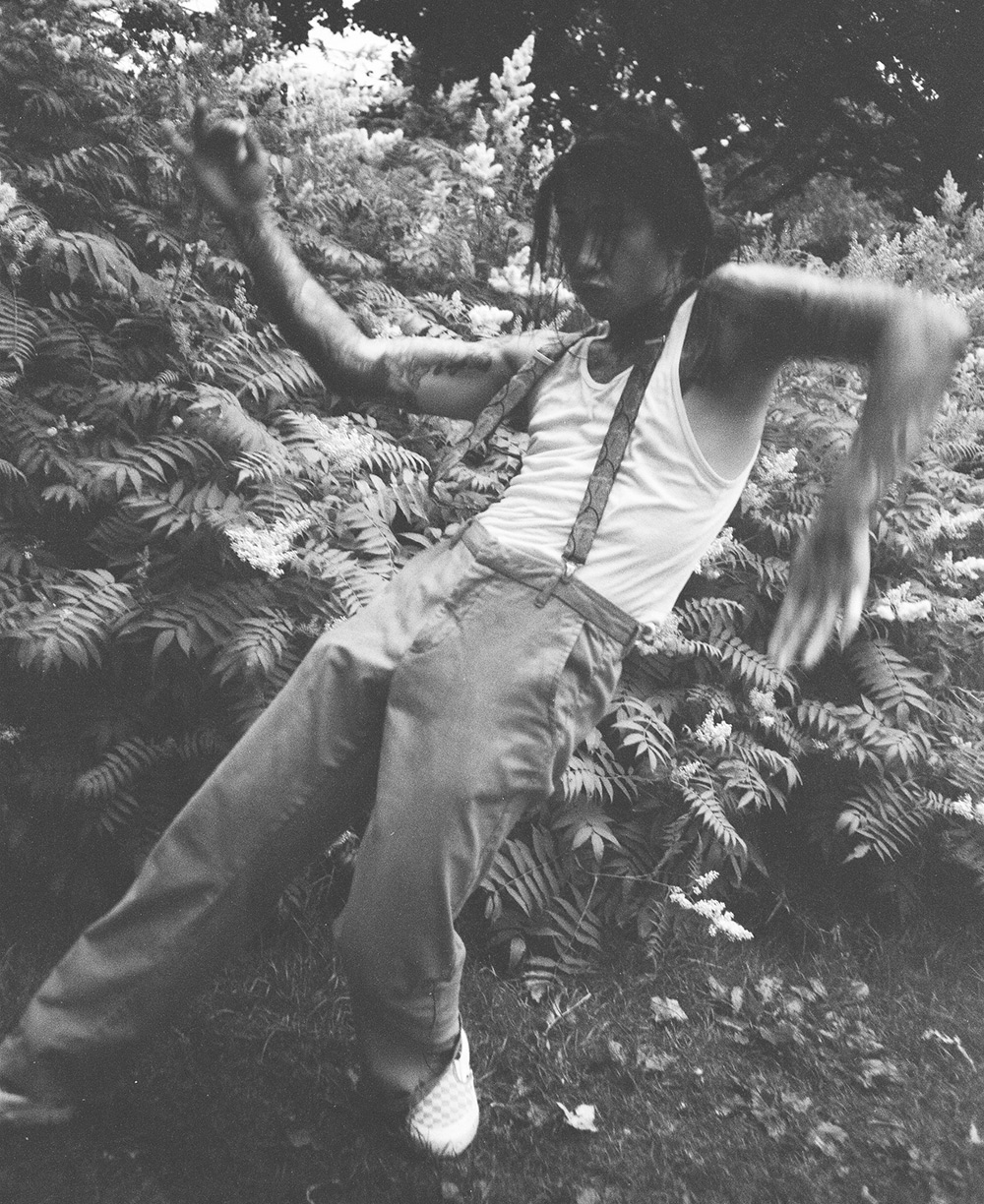
The Walrus continued its coverage of Canada’s latest arts and culture trends, controversies, and major figures in 2022—from high art to popular culture.
In “Why This Poet Declared War on Her Own Book,” Connor Garel reported on M. NourbeSe Philip’s battle to have the Italian version of her 2008 poetry book destroyed over translation issues. Garel also profiled dancer and photographer Frankie Perez, in “Breaking Through: One Photographer’s Mission to Capture Hip Hop’s Underground Roots,” about their recent work celebrating the world of breakdancing. And Sarah Liss painted a compelling portrait of one of Canada’s most well-known directors and actors with “Who Does Sarah Polley Think She Is?,” a spotlight on Polley’s personality, career, and evolution into an Academy Award-winning screenwriter.
The Walrus also delved into timely discussions about popular culture, as in Sakeina Syed’s analysis “The Rings of Power Has a Troll Problem,” which examined the backlash to the new Lord of the Rings series by “self-anointed Tolkien purists” who took issue with the show’s diverse cast. Lisa Levy’s “Groupies Deserve More Credit” considered the important role that groupies have played in “the ecosystem of rock,” often acting as both muse, critic, and chronicler of the bands they follow.
The Walrus arts and culture stories were shared widely across digital as well as traditional media outlets. Tracey Lindeman’s story “Why Is Canadian Architecture So Bad?” was featured on The Big Story podcast, and Harley Rustad’s “The Women’s National Team Taught Canada How to Be a Soccer Country” earned a mention in Al Jazeera.
Gabrielle Drolet’s “In Defence of Garlic in a Jar: How Food Snobs Almost Ruined My Love of Cooking” made a splash in the food world, earning a mention in the popular Smitten Kitchen newsletter and getting a shout-out from celebrity chef Nigella Lawson on Twitter. The story was featured on the Firefox homepage (curated by Pocket), and in Memoir Monday, and Gabrielle was interviewed by Radio-Canada.
LITERATURE AND POETRY
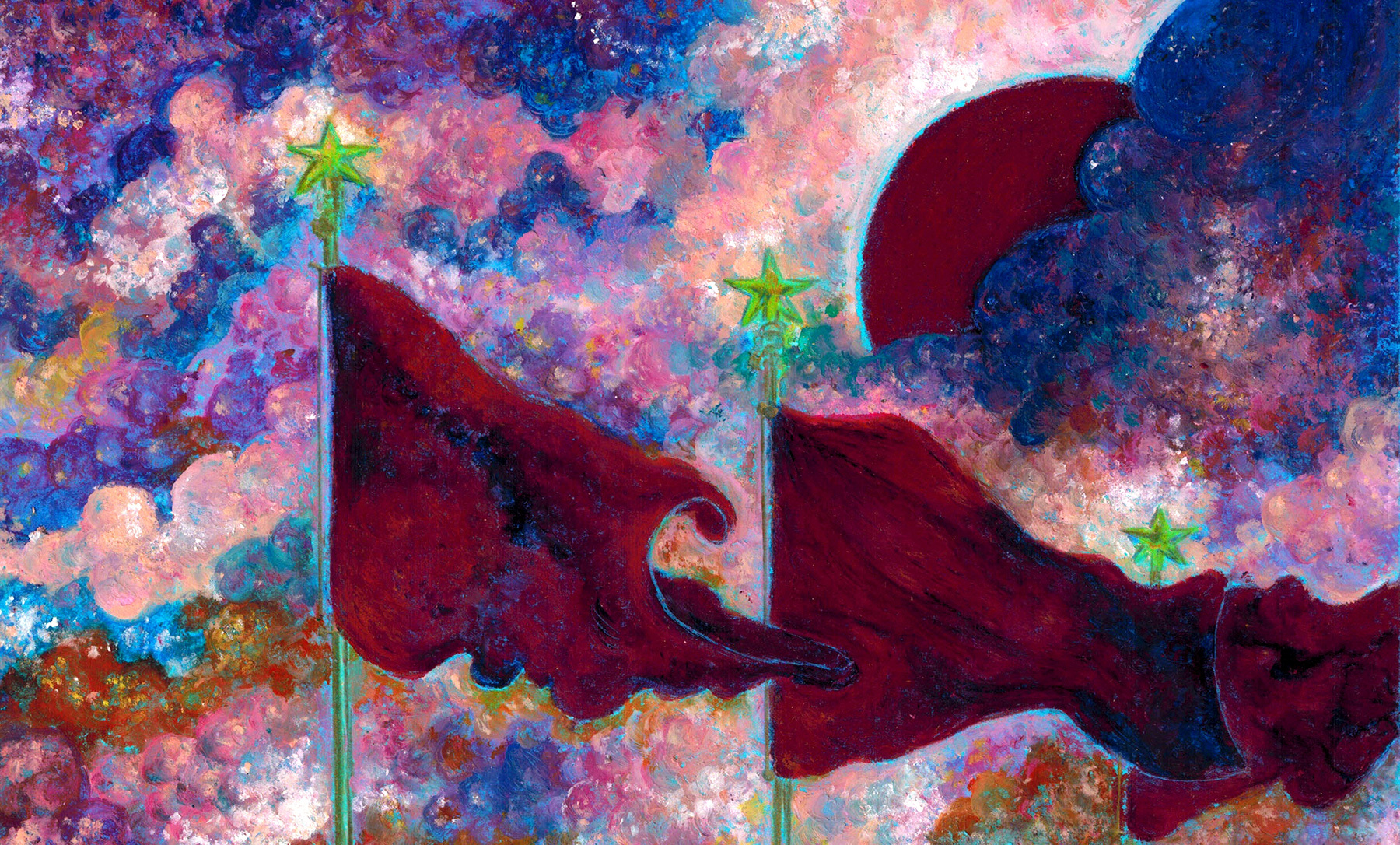
The Walrus showcased fiction and poetry by emerging and established authors and poets from across Canada. In 2022, acclaimed writers like Billy-Ray Belcourt, Roxanna Bennett, Rawi Hage, Sadiqa de Meijer, Kayla Czaga, and Tolu Oloruntoba interrogated the lives we’ve lived and mourned the ones we’ve lost.
In “Bro,” Giller Prize–winning author Ian Williams wrote a satirical story about Greg, a man desperately looking to make a Black friend, a task made harder by the fact that Greg doesn’t know many—any—Black people. Nola Poirier’s “The Beekeeper” examined the interpersonal dynamics of a family through their unique relationship with bees.
As part of our Teen Walrus series, we featured the short story “The Gate of Heavenly Peace” written by seventeen-year-old Yan Xi Li, 2021 Amazon First Novel Award’s Youth Short Story finalist. The title referenced the translation of Tiananmen Square, which, in the story, is the centrepiece of a tragic family secret a young girl learns.
The poetry that appears in our pages continues to be well crafted and poignant. We posthumously published Richard Sanger’s “November Run,” a poem about a man in a cancer ward dreaming of the freedom and exhilaration of going on a run with his friend:
as one nurse describes her new dessert
—Rice Krispie Squares, peanut butter, chocolate—
to another who hooks me up to my IV drip,
and I want nothing more than to go
for a run with you, as wild
and muddy and unpredictable
as your letter, a long November run…
In “Heel Poem / Black-Hooded,” Governor General’s Literary Award winner Tolu Oloruntoba delved into his subconscious and used the power of poetry to explore his past trauma. And Nyla Matuk compared “a slow summer evening” to “an almost-boiled lobster,” exploring memories, sensations, and seasons in her evocative poem “Synchrony.”
The Summer Reading issue featured three poems that were wistful and melancholic. Rhiannon Ng Cheng Hin honoured her grandfather’s recent passing with “Telephone Repairman,” a poem where a stranger discovers a lost hammer and wonders who it belongs to, while Susan Musgrave’s “Tears of Things” was a sorrow-tinged memory of summers spent with grandparents now gone. Rounding out the issue was Terese Mason Pierre’s “Brink,” a vivid recounting of unrequited feelings at a riverside.
Fellowships and Education
In 2022, we were proud to welcome nine fellows from across Canada. Our sought-after Editorial Fellowship Program has expanded to run for one year instead of the earlier duration of six months. With the support of a growing roster of funders, The Walrus now offers writing residencies as well as fellowships focused on digital journalism and nonprofit management.
Thank you to our 2022 fellows for their work to advance Canada’s conversation:
- Soraya Amiri, JHR Fellow, Toronto
- Emma Buchanan, Cannonbury Fellow, Toronto
- Yasmin Duale, CIBC Digital Fellow, Toronto
- Trisha Gregorio, TD Fellow, Hamilton
- Tobin Ng, Chawkers Fellow, Ottawa
- Emma Wilkie, Power Corporation of Canada Senior Fellow, Portapique
- Aysha White, The Walrus Editorial Fellow, Montreal
We continue to celebrate our fellows beyond their time spent at The Walrus, which, for many, provides a launchpad for their careers.
- Julia-Simone Rutgers, our inaugural Justice Fund Writer in Residence (2021/22), is now the Manitoba reporter for The Narwhal
- Lucy Uprichard, our 2020/21 Chawkers Fellow, is now Editor-in-Chief of Maisonneuve
- Leila El Shennawy, our 2021/22 Cannonbury Fellow, is now an Associate Editor at Reader’s Digest Canada
- Tajja Isen, former fellow at The Walrus (2018/19), published Some of My Best Friends: Essays on Lip Service in 2022
Reach and Impact
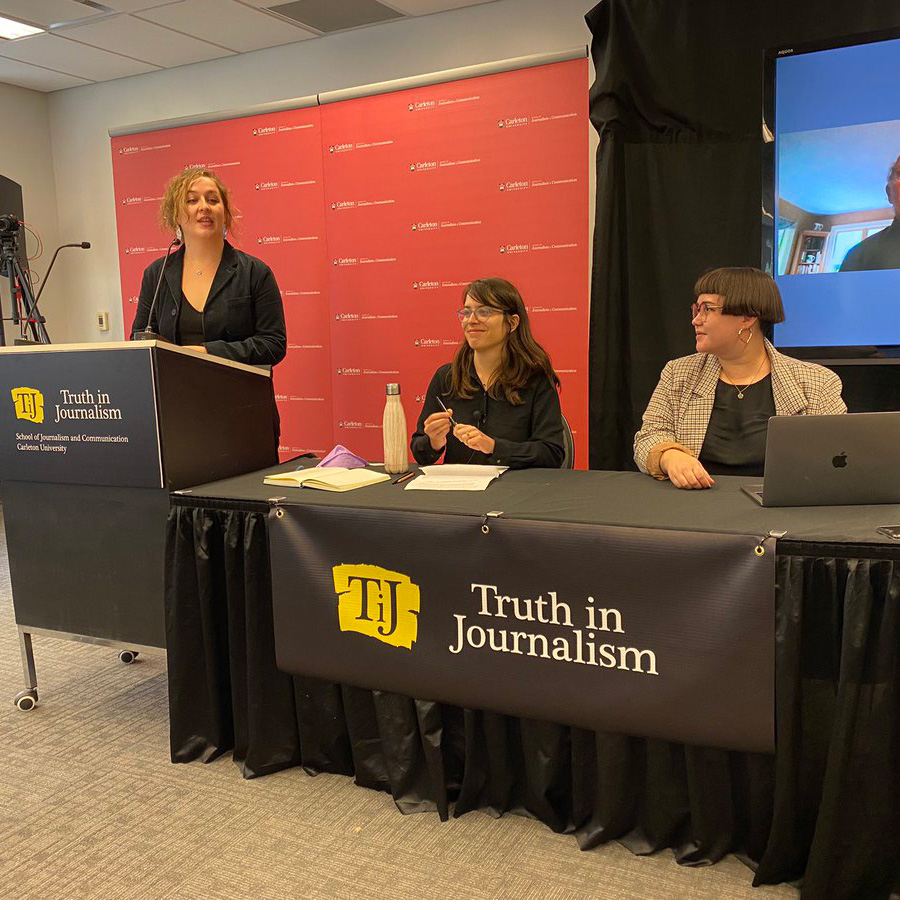
The work of The Walrus goes far beyond its own pages and stages. Many of our staff take on educational roles in other settings, including mentorship programs, conferences, workshops, and panel discussions.
Features editor Carine Abouseif participated as a mentor in the 2022 Great Canadian Pitchfest, an event that offers professional freelancers the chance to pitch story ideas to editors at Canada’s best magazines.
Siddhesh Inamdar, copy editor, was a panelist at the 2022 Toronto edition of the Jaipur Literature Festival, as part of a session called “Hyphenations: The Home and The World” focusing on diasporic writing.
Harley Rustad, senior editor, was selected as a mentor for the 2022 Writers’ Trust Mentorship program, which supports emerging creators working in fiction, poetry, and literary nonfiction. Calgary writer Raksha Vasudevan is the mentorship recipient in the literary nonfiction category and will be working with Harley on her manuscript, Crossing into Whiteness.
Carmine Starnino, interim editor-in-chief, was a panelist at “Independent Media and Public Scholarship,” a virtual panel discussion at Concordia University.
Senior editor Daniel Viola led a number of pitch workshops for editorial fellows both at The Walrus and The Local as well as at Toronto Metropolitan University. Daniel was also a judge at the 2022 Digital Publishing Awards.
Samia Madwar, senior editor, was selected as a mentor within the National Media Awards Foundation’s BIPOC Mentorship program in spring 2022. Samia was also a speaker at a number of events in 2022, including the Word on the Street, the International Festival of Authors, and the Truth in Journalism Conference, and was a judge at the Digital Publishing Awards.
Truth in Journalism Conference
In 2022, a first-of-its-kind conference on fact checking in journalism was held in Ottawa. “Truth in Journalism: How Should Journalists Think about Accuracy” was organized by Allison Baker and Viviane Fairbank, the current and former heads of research at The Walrus.
Around 100 attendees took part, in person with keynote speeches by Pacinthe Mattar on objectivity as a journalist, Tom Rosenstiel on “truth” in journalism, and Niigaanwewidam James Sinclair on journalism and reconciliation. The conference marked the launch of Baker and Fairbank’s Truth in Journalism Fact-Checking Guide—a freely available resource at thetijproject.ca created by the pair as part of their 2021 Michener–L. Richard O’Hagan Fellowship for Journalism Education.
Awards and Accolades
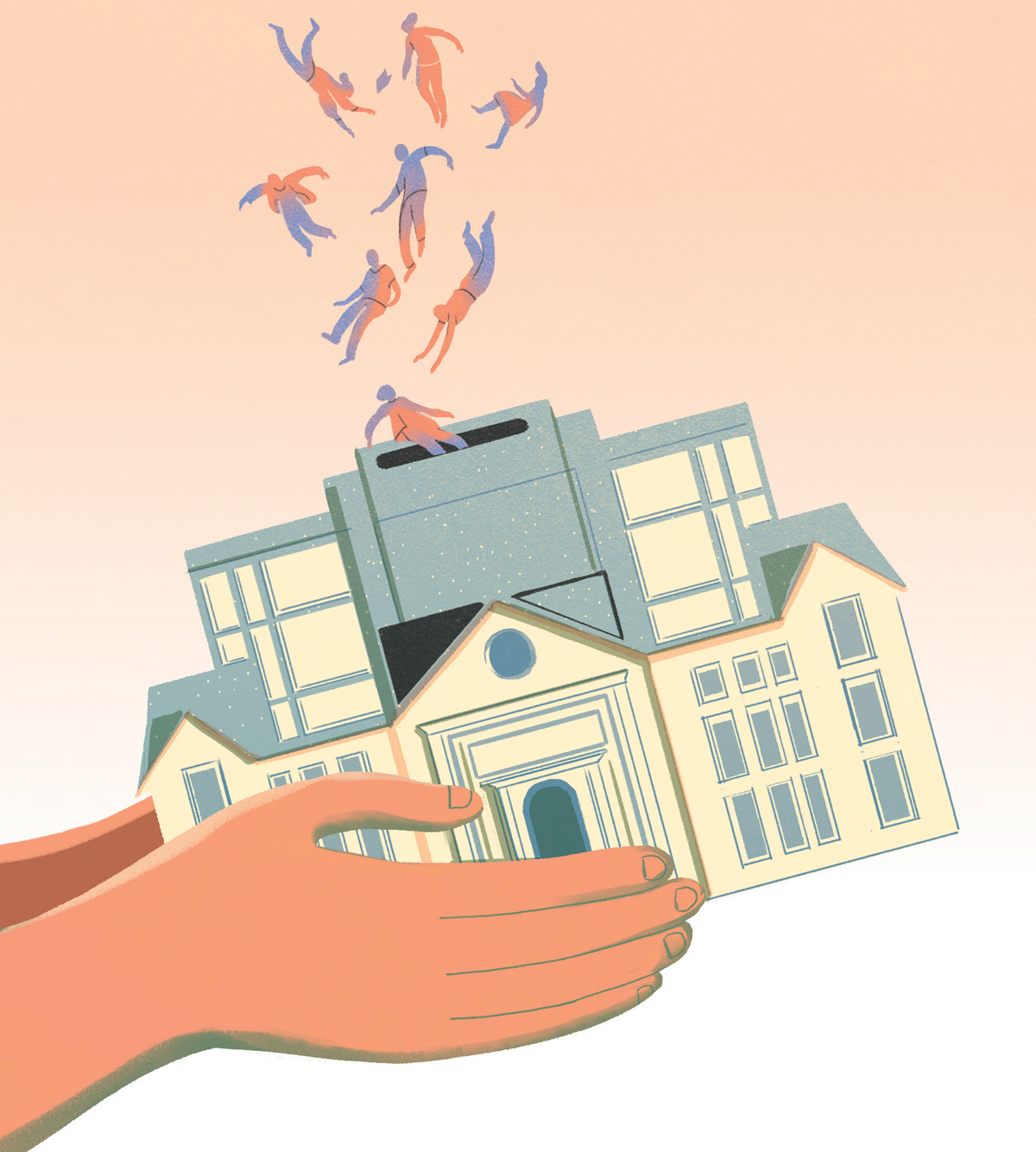
The work done by The Walrus continues to be recognized and awarded by our peers, and 2022 was no different. We are delighted that the hard work and dedication that goes into creating our stories is acknowledged at these award ceremonies.
We started the year with two gold awards at the Canadian Online Publishing Awards. In the Consumer category, The Walrus won the Best Multicultural Story award for Pacinthe Mattar’s “Objectivity Is a Privilege Afforded to White Journalists” and the Best Virtual Event for Poetry for the Moment, created by former staff members Angela Misri and Sheena Rossiter and former fellow on disability and inclusion Aimee Louw.
We were especially honoured when Nicholas Hune-Brown was awarded the prestigious 2022 Canadian Hillman Prize for Journalism for his investigative piece “The Shadowy Business of International Education.” Nicholas went on to win in the Written Feature category, for the same story, at the Canadian Association of Journalists awards.
Writer Simon Lewsen and photographer Chloë Ellingson were joint winners—along with the Toronto Star—for the Mindset Award for Reporting on the Mental Health of Young People for their piece “Inside the Mental Health Crisis Facing College and University Students.”
The 2022 Michener–Deacon Fellowship was awarded to Rob Csernyik, who will produce a new piece of investigative reporting on the relationship between gambling and suicide in Canada for The Walrus. The 2022 Mark Rosenfeld Fellowship in Higher Education also went to two journalists who will work together to produce a story in The Walrus. Jadine Ngan and Tahmeed Shafiq were the recipients of the fellowship and will be writing about campus suicides.
The Walrus was once again recognized at the Digital Publishing Awards, where Minelle Mahtani won gold in the Best Personal Essay category for “Finding My Voice as My Mother Lost Hers.”
We capped off a successful year of awards by being named overall winners at the 2022 National Magazine Awards. The Walrus won gold in Investigative Reporting for “Students for Sale” by Nicholas Hune-Brown, in Essays for “Quitting America” by M. E. Rogan, in Profiles for “Citizen of Nowhere” by Adnan Khan, and in Fiction for “The Mission” by Troy Sebastian (nupqu ʔa·kǂam’). We also won silver in Long-Form Feature Writing for “Justice on Trial” by Eva Holland.
Celebrating Canada’s Conversation

Spring 2022 signalled a return to a sense of normalcy in many ways. We were happy to bring back The Walrus Gala in person, this time on May 18, 2023—a departure from the event’s traditional January occurrence. More than 300 guests reunited at the Fermenting Cellar in Toronto’s Distillery District and were treated to an opening performance by singer-songwriter Aysanabee, a poetry reading by Canisia Lubrin, and live music by The Walrus House Band. The evening raised $475,000 in support of our work.
Calgary has long been a stronghold of support for The Walrus, with many of our board members, National Advisory Council members, and donors hailing from the west. We were thrilled when board member Zai Mamdani generously offered to host a gathering of friends of The Walrus, old and new, at her beautiful home. On June 8, over fifty guests had the chance—many of them for the first time—to meet executive director Jennifer Hollett in person. The crowd ate, drank, and conversed into the small hours, making it an evening to remember.
The annual Optimistic Canadians party at The Walrus is a gathering that celebrates our multi-year supporters and partners. Following two years of virtual events, we were pleased to return in person on November 8, this time at artist Charles Pachter’s superbly renovated studio and home. Over forty supporters came to enjoy a bold evening of art and conversation and to renew their support for The Walrus.
2022 Jeopardy! champion Mattea Roach attended The Walrus Gala and mentioned it on live television when she returned for the Tournament of Champions that same year.
The Walrus Lab

The Walrus Lab has been creating content and providing other storytelling services to top brands in Canada through custom written (print and digital), audio, and events projects. In 2022, The Walrus Lab worked with clients on notable podcasting projects and made a return to in-person events with the annual Amazon Canada First Novel Award.
In 2022, The Walrus Lab began production, in French and English, on its first bilingual podcast, Canadian Time Machine. Funded by Heritage Canada, the series features four episodes on key points in Canadian history, including the 1946 Canadian Citizenship Act and an interview with former governor general Adrienne Clarkson on the creation of the Decorations for Bravery.
Also with Heritage Canada, The Walrus Lab produced an eight-page supplement in the January/February issue of the magazine, marking forty years of the Canadian Charter of Rights and Freedoms. The supplement, which was also published online in English and French, included stories about important Charter cases as well as an essay on the future of the Charter and human rights in Canada, written by human rights advocate Amira Elghawaby.
Additionally, 2022 marked the launch of The Walrus Lab’s first ever podcast with young people, Youth for Youth. The six-episode series featured six different youth hosts who received mentorship and training from The Walrus Lab as well as podcast production company Media Girlfriends. Episodes of the podcast covered topics like “Mental Health & LGBTQ2+ Youth,” “The Anatomy of Cancel Culture,” and discussions on climate change.
Existing podcasts produced by The Walrus Lab also performed well last year. What About Water? With Jay Famiglietti, The Walrus Lab’s podcast for the Global Institute for Water Security, is consistently ranked among the top ten earth science podcasts in North America, according to Chartable. In 2022, the podcast launched its fourth season and saw a 60 percent jump in subscribers. And last year, two other podcasts produced by The Walrus Lab and The Walrus—Courage Inc. and The Conversation Piece—were featured as part of Air Canada’s in-flight entertainment for the first time.
2022 was the first year since the beginning of the pandemic that the Amazon Canada First Novel Award ceremony was held in person, taking place at the Globe and Mail Centre in Toronto. Planned and executed by The Walrus Lab, the awards are presented to emerging Canadian novelists and youth writers. In 2022, the top award of $60,000 went to Pik-Shuen Fung, author of the novel Ghost Forest, while seventeen-year-old Caitlin Mah was the winner in the Youth Short Story category for “Mei-Ying, the Heavens Are Crying.”
Help ensure another successful year.

Jennifer Hollett
Executive Director, The Walrus
Thank You
As a registered charity with an educational mandate, the strength of The Walrus lies in its unique funding model. Our work is made possible through the philanthropic support of individuals, corporations, and foundations, as well as sponsorships, client relationships with The Walrus Lab, government funding, and charitable grants, as well as circulation and advertising revenue.
Donor Listing
We thank the following individuals, foundations, and companies for their commitment to advancing Canada’s conversation in 2022 in our donor listing here.
With thanks to all those who served on our Board of Directors in 2022:
Jodi Butts, Chair
Shari Austin, Vice-Chair
Diane Blake, Vice-Chair
Chima Nkemdirim, Vice-Chair
Stephen Atkinson
Shakir Chambers
Ira Gluskin
Elizabeth Gomery
Alyssa Hussein
Åsa Kachan
Claire Lanctôt
Jennifer F. Longhurst
Zai Mamdani
Roxanne McCaig
Scott Mullin
Rosemary Phelan
Ray Sharma
With thanks to our National Advisory Council members for their friendship and expertise over 2022:
Ian Alexander
Zahra Al-Harazi
Shelley Ambrose
Charlie Angelakos
Maxine Bailey
Bruce Bennett
Helen Burstyn
Cameron Charlebois
Paul Cohen
Heather Conway
Clint Davis
Michael Decter
John Delacourt
Rupert Duchesne
Martha Durdin
William Fox
Roger Garland
Emmanuelle Gattuso
John Geiger
Marina Glogovac
Blake Goldring
Francesca Grosso
David Harrison
Dr. Eric Jackman
Tom Jackson
Roberta Jamieson
Donald K. Johnson
Mark Kingwell
Chethan Lakshman
Janelle Lassonde
Gerald Lazare
D’Arcy Levesque
James Little
Louise MacCallum
Hugh MacKinnon
Bruce MacLellan
Robin McLay
Anna Porter
Julian Porter
Justin Poy
Karen Prentice
Irfhan Rawji
Gretchen Ross
Pierre Santoni
Niigaanwewidam James Sinclair
Gillian Smith
Lee Smolin
Helga Stephenson
Mira Sucharov
Anne Sutherland
Vince Timpano
John Tory Jr.
Aritha van Herk
2022 Educational Review Committee
Åsa Kachan, Chair
Mark Migotti, Vice-Chair
Madhur Anand
Benjamin Berger
Randy Boyagoda
Lea Caragata
Nadine Caron
David Cramb
Stephen Kimber
Logan MacDonald
Fenwick McKelvey
Tokunbo Ojo
Zoe Todd
Leadership Team
Jennifer Hollett, Executive Director
Carmine Starnino, Interim Editor-in-Chief
Karl Percy, Chief Financial Officer
Tracie Jones, Director of Partnerships and Sponsorships
Mihira Lakshman, Director of The Walrus Lab
Laura Lavie, Development Director
Bryan Maloney, Director of Audience Engagement
Monita Mohan, Marketing Manager
Maria Musikka, Production Director
Christopher Wang, Digital Director
Download and read the complete 2022 Year in Review here.
—
Cover image credits (clockwise from top left): Frankie Perez, Marzena Skubatz, Min Gyo Chung, Grant Harder



